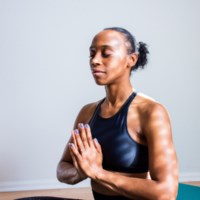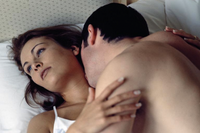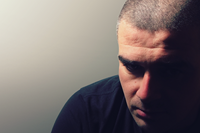In this time of rapid and uncertain change, some things remain constant, like the ways to keep your body healthy and strong. A simple question would be: who stands the greater chance of withstanding the symptoms of a viral infection, one who maintains the health of one’s environment, or one who does not? Unfortunately, too many people fail to ask that basic, valuable question and instead argue over treatment options. Treatments are important, for sure, but whatever any particular treatment might be, the person who cares for his or her environment will handle the treatment better than if he or she does not. This is not a deep philosophical statement – it is simple logic. It does not depend on the virulence of the pathogen, either – in every way, people who care for their environment will have a greater probability of handling illness.
 Athletes take many physical hits and stresses. They absolutely must condition themselves to withstand these stresses. So too warriors and soldiers of yesterday and today: only the conditioned can take the battering which results from their call of duty. Would you choose a conditioned horse for which to win a race, or would you place your bets on an older, deconditioned horse? There are almost always exceptions to the rules, but all in all, a properly conditioned person tends to fare better than a deconditioned one.
Athletes take many physical hits and stresses. They absolutely must condition themselves to withstand these stresses. So too warriors and soldiers of yesterday and today: only the conditioned can take the battering which results from their call of duty. Would you choose a conditioned horse for which to win a race, or would you place your bets on an older, deconditioned horse? There are almost always exceptions to the rules, but all in all, a properly conditioned person tends to fare better than a deconditioned one.
What can you do to strengthen your body? I have written a book on maintaining optimal health, so I could probably ramble on for pages. But let me keep things relevant to our current climate surrounding the coronavirus and its associated illness, Covid-19. Since it is mostly a lung cell attacking virus, keep your lungs as clean and conditioned as possible. I will not bore you with a quit smoking or quit vaping sermon, but I am certain that everybody understands that each habit increases risk. By no means would I share smoking paraphernalia at this time – bongs and hookahs might just be things of the past – smoking in the era of Covid-19 should be a solitary act. Personally, I would not hinder my resistance with any recreational drug whatsoever, but if you must, then stay moderate. Partying hard can, and often does, inhibit the immune system. If you are going to party, then just make sure you get plenty of sleep. Definitely do not go hard two days in a row.
 You should maintain your cardiovascular conditioning. If you can run without pain, do so. Running outside on pavement is probably better than on a treadmill. Either way, get to a point of heavy breathing and sweating every time you challenge your cardiovascular system. Do not run with a mask on. Get fresh air: oxygen is paramount to cardiovascular health. Can’t run? Skip rope. Shadow box. Dance. Do whatever it takes to get your heart rate up and into a sweat. Strong lungs may not be immune to infection, but the greater the surface area of the lungs to absorb oxygen, the better for you if, in fact, you fall ill.
You should maintain your cardiovascular conditioning. If you can run without pain, do so. Running outside on pavement is probably better than on a treadmill. Either way, get to a point of heavy breathing and sweating every time you challenge your cardiovascular system. Do not run with a mask on. Get fresh air: oxygen is paramount to cardiovascular health. Can’t run? Skip rope. Shadow box. Dance. Do whatever it takes to get your heart rate up and into a sweat. Strong lungs may not be immune to infection, but the greater the surface area of the lungs to absorb oxygen, the better for you if, in fact, you fall ill.
As always, eating whole, natural foods will keep you vibrant and well-functioning. Take this time of quarantine to cook most of your meals at home. Keep the dining out to a minimum. Try bringing down your caloric intake, if you are overweight, and exercise daily. I realize these are not always the easiest things to implement, but in my opinion they are the necessary things to do. As always, results will come down to your desire and commitment. However, keep in mind that one of the highest risk factors with regard to Covid-19 is obesity. This is not surprising information. I have made similar warnings throughout the years: Obesity exponentially increases the risk of falling ill. The reasons are many, and not necessary to delve into here, just suffice it to say that you almost always have a better chance of wellness by keeping fit and trim. Take the first step, the rest will follow.
 Keeping the mind balanced is probably the greatest key to staying strong in the era of Covid-19. The first, and most important, action you can take is to write down all the knowns and unknowns with regard to this virus. Do the research, look at the numbers. I think this activity is worthwhile, so much that I did exactly that last month with a group of students and clients (ask me how); it was enormous in reducing any anxiety we were feeling and putting things into perspective. The purpose of the exercise is to reduce fear, which can be a killer with regard to healing or worsening symptoms. Chronic fear rarely leads to better healing, so try neutralizing your fears around the virus. I can start you off with one major known: The virus is mostly mild, meaning the vast majority of people recover quickly. Some people do not even know they have it. “Vast majority” is well over 90%. Please put that number into your awareness. Seriously, research the virus, the illness, and the numbers. I am certain that one simple exercise will liberate you.
Keeping the mind balanced is probably the greatest key to staying strong in the era of Covid-19. The first, and most important, action you can take is to write down all the knowns and unknowns with regard to this virus. Do the research, look at the numbers. I think this activity is worthwhile, so much that I did exactly that last month with a group of students and clients (ask me how); it was enormous in reducing any anxiety we were feeling and putting things into perspective. The purpose of the exercise is to reduce fear, which can be a killer with regard to healing or worsening symptoms. Chronic fear rarely leads to better healing, so try neutralizing your fears around the virus. I can start you off with one major known: The virus is mostly mild, meaning the vast majority of people recover quickly. Some people do not even know they have it. “Vast majority” is well over 90%. Please put that number into your awareness. Seriously, research the virus, the illness, and the numbers. I am certain that one simple exercise will liberate you.
Finally, take the time to go within yourself: meditate. Quiet your mind and talk to Self – that part of you which is beyond words, thoughts, and ideas. Do this daily. Great inner strength comes from this practice. Add plenty of quality sleep and you will find your peace of mind is enhanced dramatically.
These tips are the absolute best things you can do for yourself in the era of Covid-19: Exercise, eat well, minimize smoking, sleep plenty, and balance your mind. These are the same health-enhancing behaviors I would recommend even outside a world-stopping pandemic. As I have said: some things may change rapidly, but the behaviors that strengthen the body remain constant. The numbers show that, for the most part (>90%), you will be fine. But take the time to increase your chances in that regard. Do the right things for your body and mind, and you might find this lockdown a great blessing.























